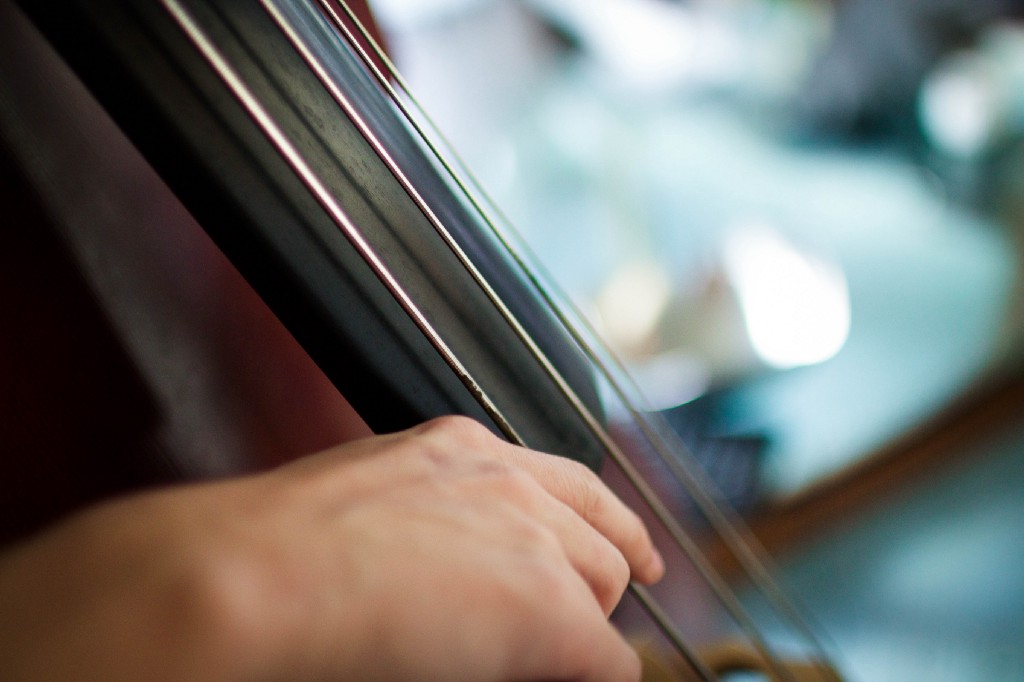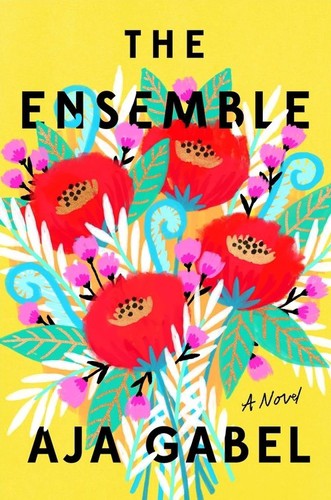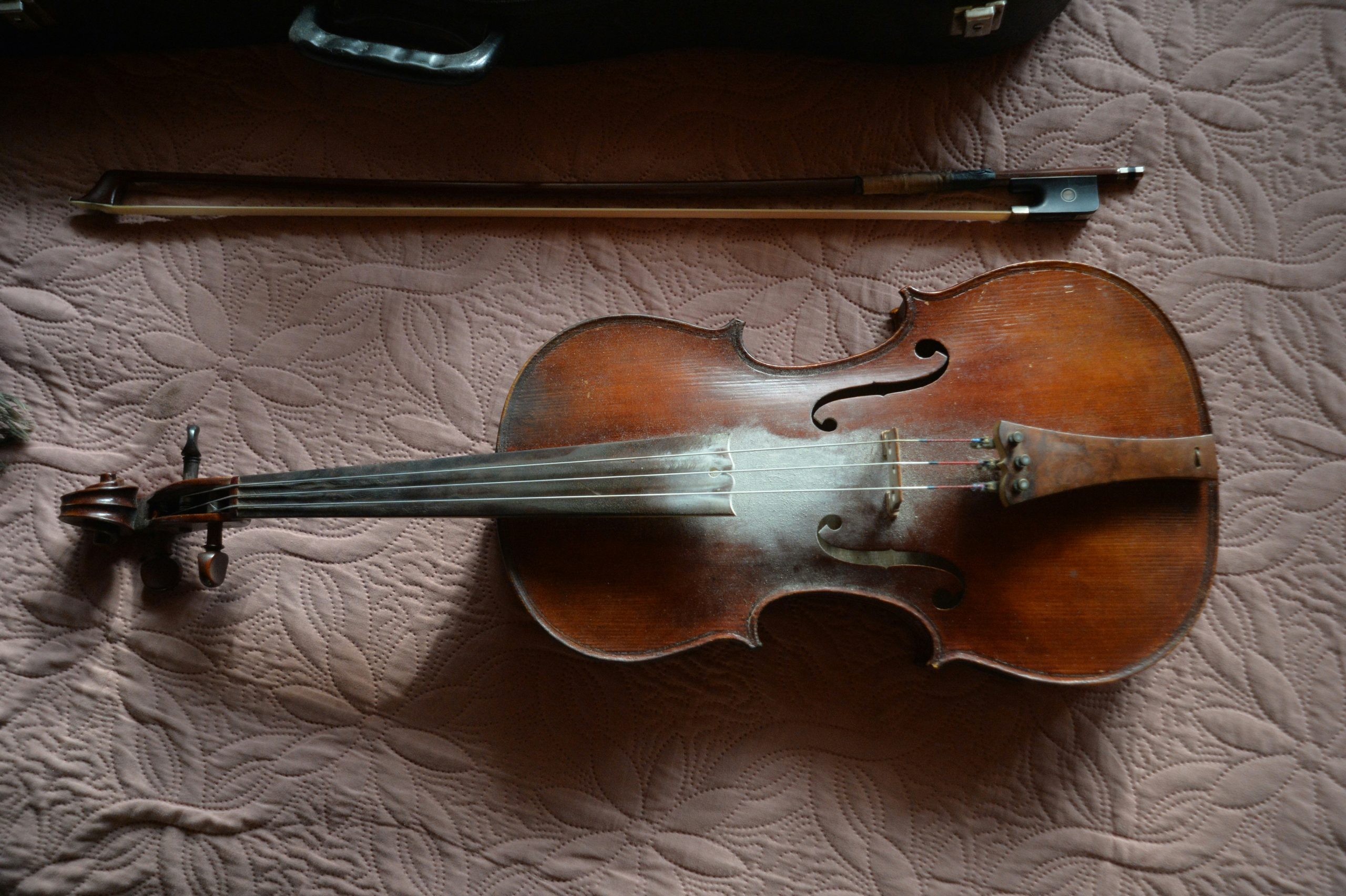Interviews
Turning a Passion for Classical Music into Fiction
Aja Gabel, author of ‘The Ensemble,’ on the relationship between music and writing

The arts of writing fiction and playing classical music have tantalized the greatest minds over centuries. Beethoven’s compositions have been taught to every student who has picked up a violin or sat down at a piano. Shakespeare’s plays have been dissected and adapted more often than any other writer. Both creative mediums are centuries old, but we are still fascinated with both.

Aja Gabel spent her life playing cello, but when she realized she wasn’t going to be the next Yo-Yo Ma, she turned to literature instead.
Her debut novel The Ensemble forges her childhood passion for classical music with her current desire to write. The book portrays a group of friends who bond in the cutthroat world of classical music. Over the years, the quartet becomes more like a family dealing with the ever-shifting politics of what their relationships mean to one another. Gabel balances earnest dialogue and warm prose to depict the lives of the group through shifting prespectives.
I spoke with her regarding the relationship between music and writing in her life, how her debut novel unfolded, and what it was like to play Yo-Yo Ma’s cello.

Adam Vitcavage: How much of a role did music play in your childhood?
Aja Gabel: When I was younger, I played cello a lot. All the time. I played music since I was five and I played the cello for twenty-five years. I studied pretty seriously in my childhood. I didn’t go to a conservatory or anything, but I did study at a college. It was a huge part of my childhood.
AV: When did you realize that maybe you could make writing a part of your life?
AG: In my senior year of high school, I wrote a short story. It was about a girl who played violin and I sent it to my high school English teacher that I really liked, Mr. Devlin. He wrote me back the summer before college and he said something similar to “this is the best story I have ever seen from a high school student. I hope you continue writing.” I never had a compliment like that before.
I pursued [writing] pretty hard in college. At Wesleyan, you have to apply to every workshop you take, so I did that. I wrote a lot but I didn’t really show it to anyone.
The Doomed and Beautiful Reach: On Prose and Music
AV: It seems like writing and classical music have gone hand in hand. You’ve written about it a few times and now the relationship resulted in your first novel. How are the two disciplines similar and how do they differ?
AG: They are very different in practice, which is what I like. I like that when I write, [I am] sitting down to access this semiconscious place of creativity. It isn’t structured at all. When I practiced music, it was very structured. When I sat down, I knew exactly what I had to do.
It’s similar when you go up to perform. Both have this thing which I can’t articulate.
AV: Was it hard writing your first novel?
AG: It was really hard. I went to Houston for my PhD and Antonya Nelson was my teacher there and she told us to do the easiest thing for our first novel. I was already knee deep in this which has four points of view and is told across twenty five years. I thought: “Oh shit, I did the wrong thing.”
She was right. It was hard to write that long of a project and I made it harder on myself. I wrote the beginning a lot because I needed to figure out what the structure was.
I was already knee deep in [the draft] which has four points of view and is told across twenty five years. I thought: “Oh shit, I did the wrong thing.”
AV: She said to write easy, but the structure made it difficult for you. I assume writing about college friends who play classical music was somewhat easy though?
AG: The subject matter was easy and didn’t require a lot of research. I played classical music my entire life and studied it in college. It was the only thing I thought I knew enough about to write 300 pages. Now I feel more confident in being able to research or imagine for that many pages.
AV: And going back to the structure. Was it difficult having four POV characters and a quarter century long plot?
AG: I didn’t feel right writing about the quartet and giving them all a voice. The problem was when I tried to be too formal about it. I thought about writing it in a sonata with an introduction, a development, and a recapitulation. I tried to do that and it was insane.
Then I tried to write it about one weekend and one performance. That was impossible. I really like novels that focus on a short amount of time, but it’s really hard for me to do.
It really came down to the point of the story for me was that they develop a family. They choose this family. To illustrate that takes time. Their relationships evolve and I needed to show that across time.
I did a mixture of both concepts I had initially. Each section is a short period of time, but I wrote many sections across a large period of time.
AV: The sections have different characters telling the story. For instance, section one has Jana and Brit while the next section alternates between Daniel and Henry. Why not have all four characters tell a section?
AG: It was honestly a decision about tidiness. It would have been impossible for me to do all four voices in a section. I didn’t want to skim the surface levels of the characters. I wanted to really get to know them. I realized readers wouldn’t get to know them that way. I did try to write that version but it was hard for even me to keep track of what was going on.
I didn’t want to skim the surface levels of the characters. I wanted to really get to know them.
AV: How far did you get in that draft where all four characters told a section?
AG: I wrote the first section with all four. It was just too loud. Then it was hard because you had to wait five years [when section two begins] to hear from the men. It was a structural problem: do we get enough of Daniel and Henry through Jana and Brit’s narration in the beginning? I ultimately decided that I could make that happen.
AV: All four of the characters are very distinct, but the book is called The Ensemble and they are their own family. How did you manage to keep individuals but also make them a cohesive unit?
AG: That took a lot. I was in a workshop near the middle of the process. The feedback was that people couldn’t tell them apart or tell the difference between the two male characters. At a certain point I had to chart out details for each character. Their characteristics, how people judged them, what they wanted. For instance, I had little notes jotted down that for every scene I wrote about Henry, I had to indicate about his hair, how he has this ease about him, or his curiosity. I was always turning to these notes to help make them individual.
I hope the cohesiveness comes from the longer storyline. Like how people talk to Jana about her personal life becomes more intimate over the course of the book. Or the way Daniel is able to be intimate with people is intensified over the course of the book. The longer game in the narrative is how I tried to make them cohesive.
AV: Each section starts with a selection of classical compositions. I don’t know anything about classical music and I’m sure there will be others like me who only really know Beethoven existed and Mozart was around. So can you enlighten me on why those songs were selected?
AG: I tried to choose pieces that were realistic for that time in their career, but also would illustrate something that was happening. They start with Antonín Dvořák’s “America” and they end with that. It’s a piece that you learn as a student, but also one that when professionals play becomes very transcendent. Then there are pieces that are known to be about turmoil in sections where people are down.
AV: What are some aspects of writing you’re not naturally good at?
AG: Plot. For sure. I thought for so long on a small scale from writing short stories. Writing a long piece was very tricky for me to think about what a story is about and what happens. That was something I had to write out. I wrote out the big arcs that I was working toward so I was always thinking about it even when I was writing the small moments. Those are the moments I like the most.
I know that people continue to read [my book] because a gun went off on the first page and they want to find out who did it, how, and why. But I think people enjoy reading because they see moments that reflect themselves.
AV: Well, you figured out plot because you finished a book. What do you tell people the book is about?
AG: It’s about how difficult it is to make art and a family with people you love. It’s how these people do both over the course of their lifetime.
AV: Finally, I saw listed on the resume section of your website three random trivia facts about you: you saw Sublime’s last concert, you played Yo-Yo Ma’s cello, and you accidentally met Marylin Manson. Which was the most exhilarating of the three?
AG: For sure playing Yo-Yo Ma’s cello. He has many, but the one I played is one of the nicest cellos in the world. I was very young, around fourteen. It was like being a whole different musician. My orchestra was just watching a rehearsal and he was just walking by on a break and he said we could play it. He was just doing sit-ups. Yo-Yo Ma was doing sit-ups. My conductor said I should do it because I was first chair at that point. It was intense. I wish I could do it now.
AV: Was he watching you?
AG: He was not listening. He was in the auditorium but was on the other side. If he was listening, I probably would have blacked out.










